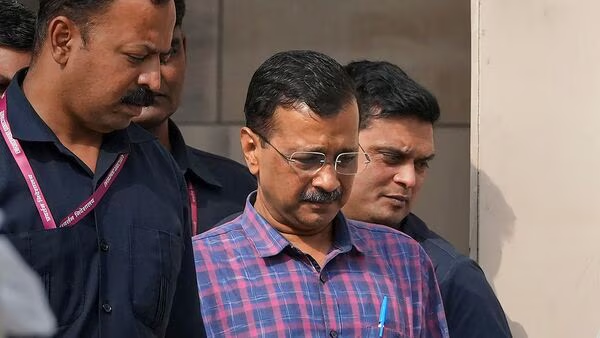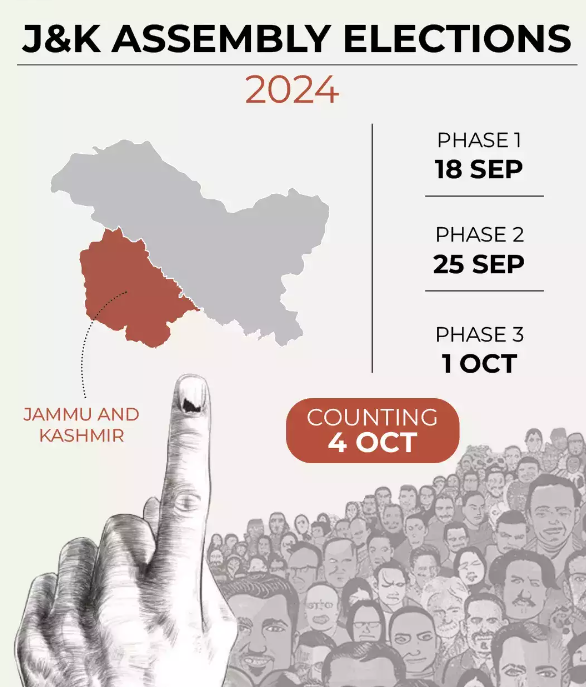In the latest episode of “As the Court Turns,” Delhi’s very own Chief Minister, Arvind Kejriwal, finds himself in a spot of bother, and no, it’s not because of Delhi’s scorching summer heat but rather a chilly reception from the Supreme Court. This scenario is reminiscent of a high-stakes courtroom drama, as Kejriwal finds himself embroiled in a complex legal battle, facing serious allegations related to the liquor policy scam.
The Supreme Court‘s recent decision to deny an early hearing on his plea for relief ensures that Kejriwal will remain behind bars, at least for the near future. This development adds another layer of intrigue to the upcoming Lok Sabha elections, highlighting a confrontation that could alter the political landscape in Delhi and Punjab.
Supreme Court Sets the Stage
Today, the Supreme Court, the highest court in India chose not to expedite Kejriwal’s plea. Represented by Abhishek Manu Singhvi, Kejriwal’s legal team argued fervently for immediate relief, citing pressing facts they claimed would “shock the conscience of the court.” However, the bench, comprising Justice Sanjiv Khanna and Justice Dipankar Datta, remained unmoved by the urgency of Singhvi’s plea and scheduled the next hearing for April 29, effectively keeping Kejriwal in custody until then.
Election Implications
This decision comes at a critical time, as Kejriwal’s Aam Aadmi Party (AAP), part of the Congress-led INDIA opposition bloc, gears up to challenge the ruling Bharatiya Janata Party (BJP) in the Lok Sabha elections. With AAP seen as a significant contender in Delhi and Punjab — regions collectively holding 20 Lok Sabha seats — Kejriwal’s continued detention could have substantial electoral repercussions. The timing and nature of his arrest have sparked discussions about potential political motivations behind the charges, adding fuel to the fiery electoral environment.
Backdrop of the Alleged Delhi Liquor Policy Scam
Kejriwal’s arrest on March 21 by the Enforcement Directorate (ED) was linked to accusations involving a now-defunct liquor policy, which purportedly involved demands for bribes amounting to ₹100 crore. The policy, which was intended to revolutionise the liquor distribution system in Delhi, has instead become a focal point of controversy, implicating several high-profile individuals within the AAP.
Delhi High Court’s Stand
Prior to the Supreme Court’s involvement, the Delhi High Court had a chance to weigh in on the matter. It sided with the ED, suggesting that the evidence provided was sufficient to justify Kejriwal’s arrest. The timing of the arrest, which occurred shortly after Kejriwal was denied protection and had skipped multiple summons, was highlighted by the AAP leader as indicative of a broader political conspiracy orchestrated by the ruling BJP.
The Political Conspiracy Angle
Kejriwal and his party have vehemently denied all allegations, framing his arrest as an “unprecedented assault on the tenets of democracy.” This narrative has been strategically positioned by AAP to resonate with their voter base, casting Kejriwal as a martyr for democratic values against what they describe as a politically motivated attack by the central government.
Judicial Custody and Beyond
As the legal proceedings trudge along, Kejriwal’s judicial custody has been extended until April 23, maintaining his status quo as a high-profile inmate. This situation is mirrored by his colleague, Sanjay Singh, whose bail was only recently granted by the Supreme Court amid critical questions regarding the ED’s inability to trace any bribe money.
Implications for AAP and Indian Politics
The unfolding events present a crucial test for AAP’s resilience and its ability to navigate through political turbulence. With the Lok Sabha elections on the horizon, the party’s strategy will likely focus on leveraging public sympathy for Kejriwal while continuing to challenge the allegations both legally and politically. Meanwhile, the BJP finds itself in a position to capitalize on the situation, potentially diverting attention from its own challenges and criticisms.
Arvind Kejriwal’s Involvement in the Delhi Liquor Policy Scam
On November 17, 2021, during the heights of the COVID-19 second wave, the Delhi government rolled out its Excise Policy 2021-22, aiming to revamp the retail liquor sector, enhance consumer experience, and boost revenue by a whopping Rs 9,500 crore. The policy, spearheaded by Kejriwal’s government, aimed to replace 600 government-operated liquor stores with privately owned ones, marking a significant shift in the liquor retail landscape.
Delhi Govt’s excise dept claims 60% rise in revenue based on tenders.
| Fee for a Year | Old Policy | New Policy | Change |
| Fee From Distributors | Rs 10 lakh | Rs 5 crore | 4,900% |
| Fee From Retailers | Rs 8 lakh | Rs 11.18 crore | 13,875% |
| Govt Revenue | Rs 6,000 crore | Rs 9,500 crore | 58.3% |
As this legal and political drama continues to unfold, its outcome may well influence not just the future of Arvind Kejriwal and the AAP, but also the broader dynamics of Indian politics. The intersection of law, politics, and public opinion in this case underscores the complex interplay of forces that shape India’s democratic landscape, reminding observers and participants alike of the stakes involved in the governance and perception of justice.
As Kejriwal brands his arrest a dramatic “unprecedented assault on the tenets of democracy,” and with AAP crying foul over what they claim is a blatant case of political vendetta, the political soap opera continues. One thing’s for sure, the viewers (aka the voters) are in for a binge-worthy season as the courtroom and electoral dramas unfold concurrently. Stay tuned, and don’t forget the popcorn!




